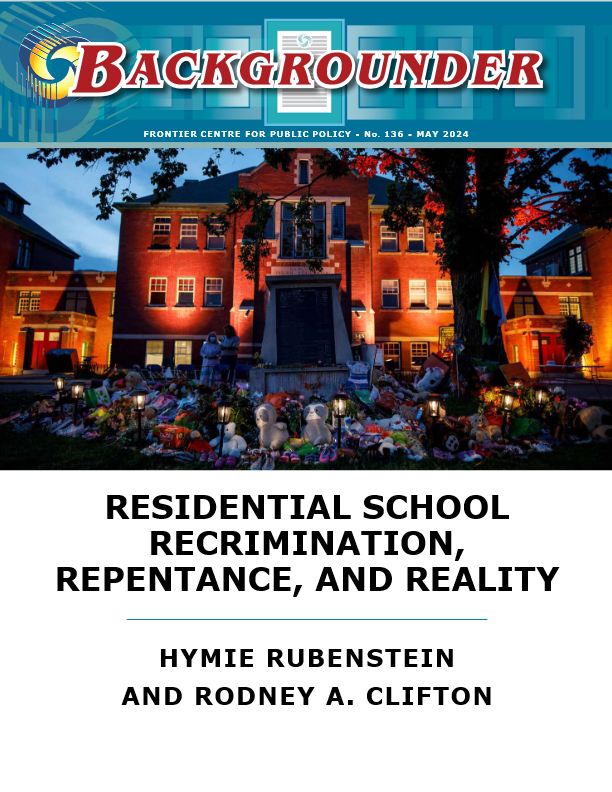Allegations of widespread abuse against children who were said to have been forced to attend Canada’s Indian Residential Schools were uncommon before the last of them was shuttered in 1996. That was the year the Report of the Royal Commission on Aboriginal Peoples alleged the existence of systemic abuse at these boarding schools, charges detailed in the 2015 Final Report of the Truth and Reconciliation Commission of Canada, the body appointed to examine the history, operation, and legacy of these schools.
Indigenous activists and institutions linked to them, abetted by a compliant mainstream media preoccupied with sensational stories, began zealously promoting even more scurrilous assertions about the Indian Residential Schools, especially those administered by the Roman Catholic Church, starting on May 27, 2021.
On that day, the Tk’emlúps te Secwépemc Indigenous band of Kamloops, British Columbia, issued a emotion-ladden press statement reported on around the world, that a ground-penetrating radar survey of the area surrounding the former Indian Residential School had found the “remains of 215 children who were students” of the Roman Catholic-run institution.
The Kamloops discovery became Canada’s George Floyd moment. There were angry vigils and public displays of grief and shame almost instantly; flags on government buildings were lowered to half-mast for nearly six months; statues of former Canadian heroes were defaced, destroyed, or removed; and dozens of mainly Catholic churches were vandalized or burnt to the ground.
The furor attending the Kamloops announcement has never receded as later findings were announced in other provinces, with the number of purportedly unmarked graves holding the remains of supposedly missing individuals, primarily children, eventually totalling more than 1,900. New burial finds prompted cries of a previously hidden “Holocaust” or “Final Solution” against Indigenous people. The Kamloops school was alleged to have been a “concentration camp,” the supposedly revealed burials evidence of a horrific crime.
More recently, Kimberly Murray, the independent special interlocutor on missing children, unmarked graves and burial sites associated with residential schools, revealed she had met with Canada’s Justice Minister to urge him to criminalize “residential school denialism”—any criticism of the established narrative that the Indian Residential Schools were genocidal houses of horror.
Read the complete report in PDF format here. (14 pages)
Read the press release here.
Hymie Rubenstein is editor of REAL Indigenous Report. A retired professor of anthropology, he was a board member of, and taught for many years at St. Paul’s College, University of Manitoba, the only Roman Catholic higher education institution in Manitoba.
Rodney A. Clifton is an emeritus professor at the University of Manitoba, and taught at St. John’s College, the Anglican College on the campus. He is a Senior Fellow at the Frontier Centre for Public Policy, and he lived for four months in Old Sun, the Anglican Residential School on the Siksika First Nation. He was the Senior Boys’ Supervisor in Stringer Hall, the Anglican hostel in Inuvik during the 1966-67 academic year. Both authors have chapters in the book From Truth Comes Reconciliation: An Assessment of the Truth and Reconciliation Commission Report (Frontier Centre for Public Policy, 2021).


